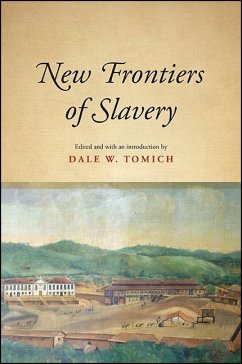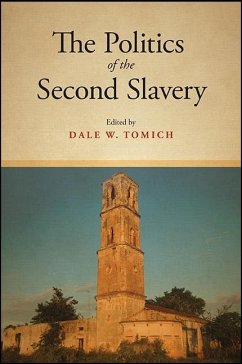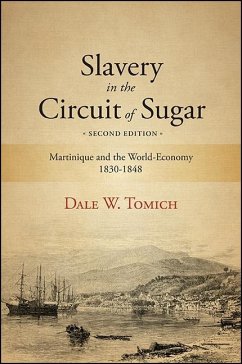
Self-Determining Haiti (eBook, ePUB)
Enriched edition. Four articles reprinted from The Nation embodying a report of an investigation made for the National Association for the Advancement of Colored People
Kommentar: Burton, Maxwell / Redaktion: Good Press

PAYBACK Punkte
0 °P sammeln!
In "Self-Determining Haiti," James Weldon Johnson presents a compelling examination of Haiti's struggle for sovereignty and self-governance in the early 20th century. Johnson's nuanced literary style, marked by his eloquent prose and rich imagery, echoes the broader themes of dignity and racial identity present in the Harlem Renaissance. This work not only contextualizes Haiti's political turmoil but intertwines historical events with Johnson's personal reflections, revealing a vivid portrait of the nation's quest for autonomy in the wake of colonialism and foreign intervention. James Weldon J...
In "Self-Determining Haiti," James Weldon Johnson presents a compelling examination of Haiti's struggle for sovereignty and self-governance in the early 20th century. Johnson's nuanced literary style, marked by his eloquent prose and rich imagery, echoes the broader themes of dignity and racial identity present in the Harlem Renaissance. This work not only contextualizes Haiti's political turmoil but intertwines historical events with Johnson's personal reflections, revealing a vivid portrait of the nation's quest for autonomy in the wake of colonialism and foreign intervention. James Weldon Johnson, an influential figure in American literature and civil rights activism, drew from his own experiences growing up in the racially charged environment of the United States, as well as his profound admiration for Haitian culture and history. As an artist, diplomat, and educator, Johnson's multidimensional background provided him with unique insights into the complexities of race and sovereignty, which he eloquently articulates in this powerful narrative. His commitment to social justice and cultural pride resonates throughout the text, marking him as a key voice in the discourse on race and identity. "Self-Determining Haiti" is an essential read for anyone interested in understanding the intricate relationship between history, culture, and politics in post-colonial contexts. Johnson's work not only enlightens readers about Haiti's past but also provokes thought on contemporary issues of self-determination, making it a crucial addition to both literary and historical scholarship. In this enriched edition, we have carefully created added value for your reading experience: - A succinct Introduction situates the work's timeless appeal and themes. - The Synopsis outlines the central plot, highlighting key developments without spoiling critical twists. - A detailed Historical Context immerses you in the era's events and influences that shaped the writing. - A thorough Analysis dissects symbols, motifs, and character arcs to unearth underlying meanings. - Reflection questions prompt you to engage personally with the work's messages, connecting them to modern life. - Hand-picked Memorable Quotes shine a spotlight on moments of literary brilliance. - Interactive footnotes clarify unusual references, historical allusions, and archaic phrases for an effortless, more informed read.
Dieser Download kann aus rechtlichen Gründen nur mit Rechnungsadresse in A, B, BG, CY, CZ, D, DK, EW, E, FIN, F, GR, H, IRL, I, LT, L, LR, M, NL, PL, P, R, S, SLO, SK ausgeliefert werden.













